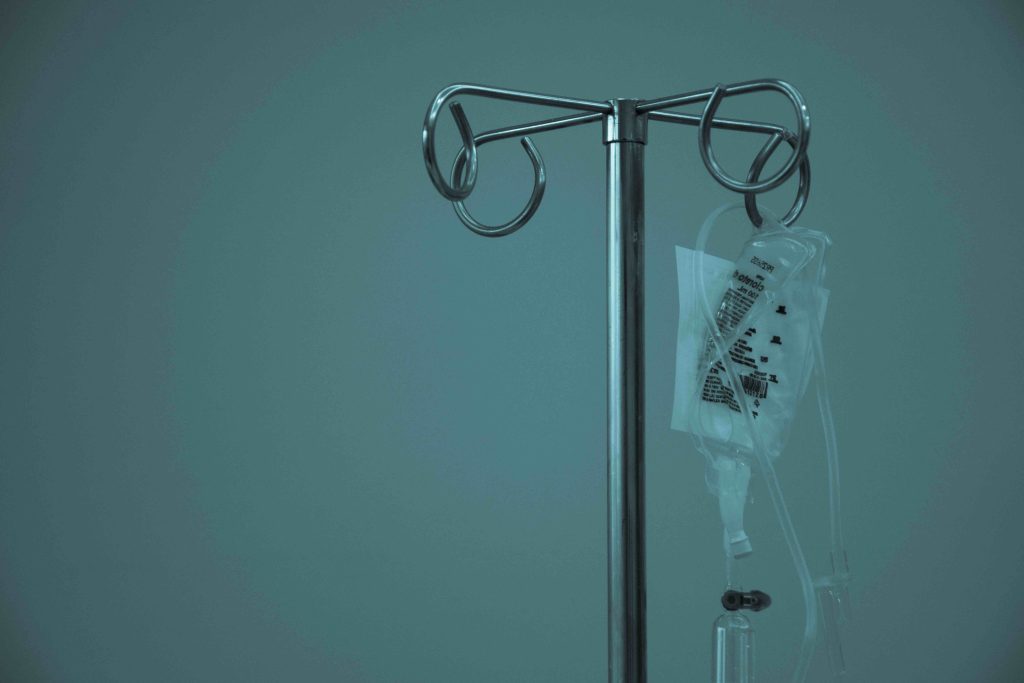How Exercise Supports Liver Cancer Patients
Posted on September 30th, 2024 by Andries Lodder

Each year, more than 800 000 people are diagnosed with liver cancer all around the world. It is the leading cause of cancer-related deaths worldwide. Since 1980, the incidence of liver cancer diagnoses has tripled, whilst death rates have more than doubled. Exercise can play an important role in supporting individuals with liver cancer, both during treatment and in recovery. While exercise cannot cure liver cancer, it offers several significant benefits that can help improve the quality of life and overall health.
Here’s how exercise can help with liver cancer:
1. Improved Physical Strength and Function
Liver cancer and its treatments (such as surgery, chemotherapy, or radiation) can cause fatigue, weakness, and muscle loss. Regular exercise helps maintain muscle mass, improve strength, and enhance overall physical function, making daily activities easier and reducing feelings of frailty.
2. Enhanced Immune Function
Moderate exercise has been shown to boost immune system function. A stronger immune system can help the body fight infections and potentially reduce the spread of cancer. This is especially important for liver cancer patients, whose immune systems might be weakened through cancer treatments.
3. Fatigue Management
Fatigue is one of the most common side effects of cancer and its associated treatments. Contrary to what one might think, regular, gentle physical activity can actually reduce cancer-related fatigue. Exercise increases energy levels and helps patients feel more alert and focused throughout the day.
4. Improved Mental and Emotional Well-Being
Being diagnosed with liver cancer can lead to stress, anxiety, and depression. Exercise releases endorphins, the body’s natural “feel-good” hormones, which can help reduce feelings of stress and improve mood. Physical activity can also provide a sense of accomplishment and control, boosting self-esteem and emotional resilience.
5. Better Circulation and Liver Function
Exercise promotes healthy blood circulation, which may help deliver oxygen and nutrients more efficiently to the body’s tissues, including the liver. This improved circulation supports liver function and overall body health, even in those with liver damage from cancer.
6. Maintenance of a Healthy Weight
Maintaining a healthy weight is important for liver cancer patients, as obesity and fatty liver disease are risk factors that can worsen liver health. Exercise, along with a healthy diet, can help control weight and reduce fat accumulation in the liver, potentially improving the body’s response to treatment.
7. Prevention of Treatment-Related Side Effects
Liver cancer treatments, especially chemotherapy, can cause side effects such as nausea, loss of appetite, and weakness. Regular exercise helps stimulate appetite, improves digestion, and reduces nausea, helping patients maintain their nutritional intake and avoid malnutrition during treatment.
8. Improved Cardiovascular Health
Cancer and its treatments can put additional strain on the cardiovascular system. Regular physical activity helps keep the heart and lungs strong, reduces the risk of blood clots, and supports cardiovascular health. This is especially important for patients undergoing treatments that may affect the heart, like certain chemotherapy drugs.
9. Support for Recovery and Rehabilitation
After surgery or during recovery, exercise can aid in rehabilitation by improving mobility, flexibility, and stamina. Gentle movement and stretching help prevent stiffness and promote healing, particularly after liver surgery or other invasive treatments.
10. Reduce Inflammation
Chronic inflammation can worsen cancer outcomes and affect overall health. Regular exercise has anti-inflammatory effects, helping to reduce systemic inflammation, which can positively impact liver health and potentially slow cancer progression.
11. Potential Improvement in Treatment Outcomes
Studies suggest that cancer patients who maintain regular physical activity during treatment may experience better outcomes, such as improved tolerance to chemotherapy or radiation and potentially longer survival rates. Exercise can enhance the body’s ability to tolerate treatments and recover more effectively.
Types of Exercise for Liver Cancer Patients
Liver cancer patients should focus on gentle, low-impact exercises that support strength and stamina without causing undue stress. Some suitable forms of exercise include:
Walking: Low-impact and easy to incorporate into daily routines.
Swimming or water aerobics: Gentle on the joints and muscles, providing full-body conditioning.
Yoga or stretching: Improves flexibility, reduces stress, and promotes relaxation.
Strength training: Using light weights or resistance bands to maintain muscle mass.
Cycling: Low-impact cardio that supports cardiovascular health.
Precautions
Consult a doctor: Always consult with a healthcare provider before starting any exercise regimen, as liver cancer patients may have specific limitations due to treatment side effects or the condition of the liver.
Start slow: Begin with short, low-intensity sessions and gradually increase the duration and intensity based on your energy levels and how you feel.
Listen to your body: It’s important not to push too hard—rest when needed, and avoid exercise if you’re feeling particularly fatigued or unwell.
Conclusion
Exercise is a valuable tool in the holistic management of liver cancer, offering benefits that enhance physical, mental, and emotional well-being. When done safely and tailored to individual needs, physical activity can help liver cancer patients feel stronger, more energized, and better equipped to cope with the challenges of treatment and recovery.
If you require any assistance with regards to exercising to improve your liver cancer outcomes, please do not hesitate to contact us!
Tweet